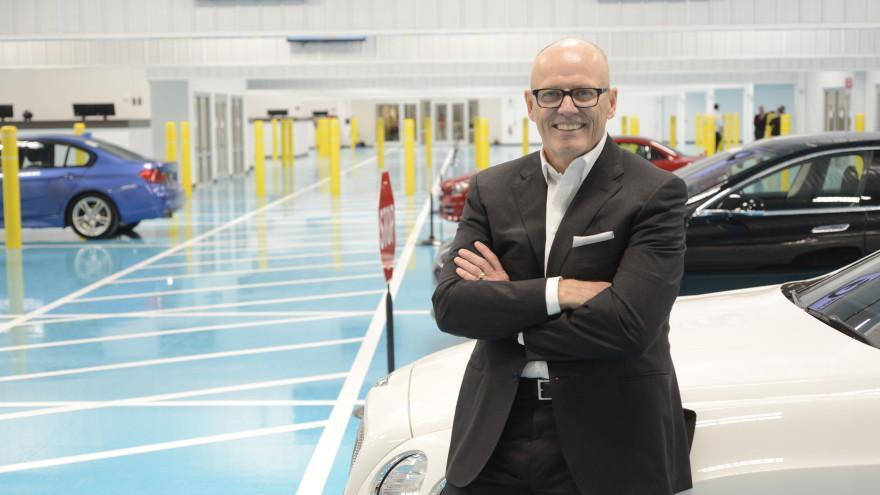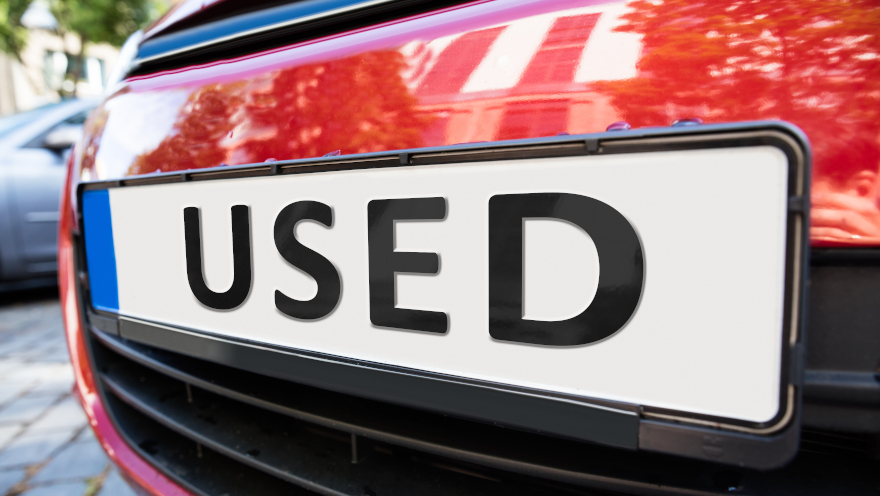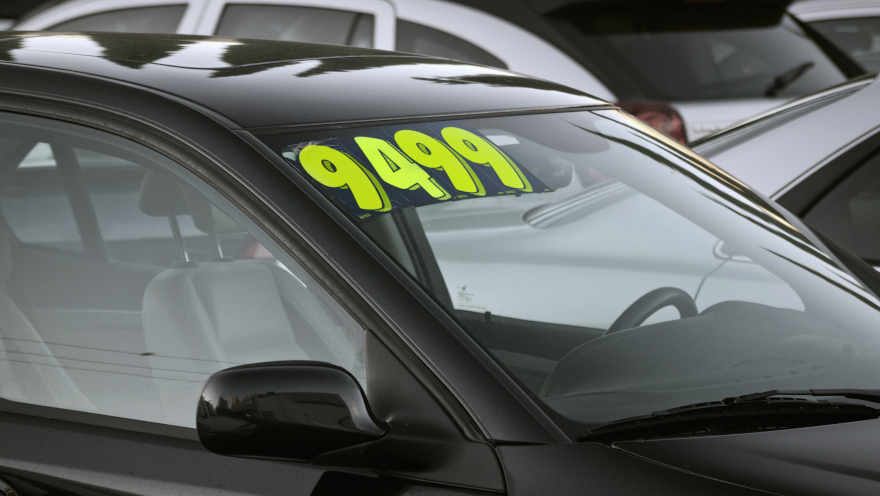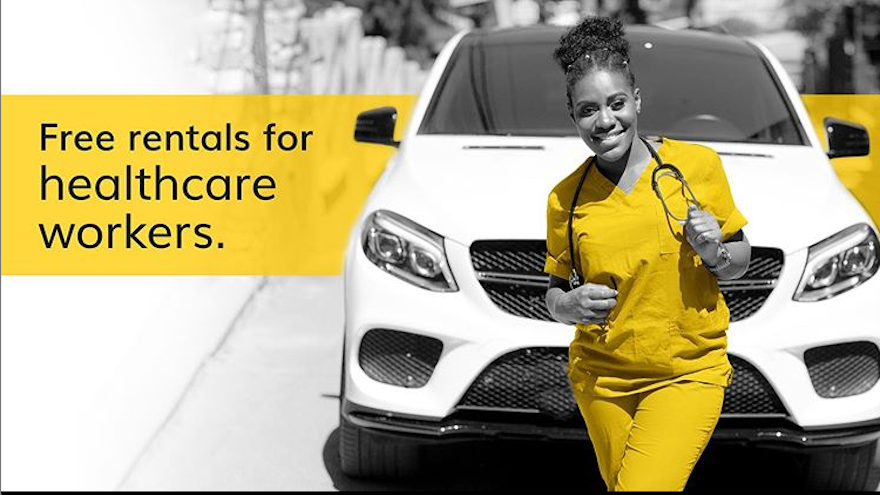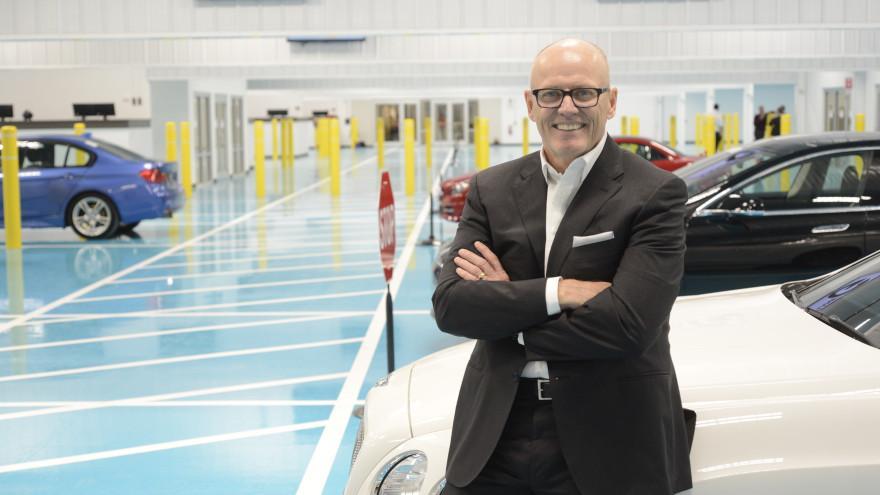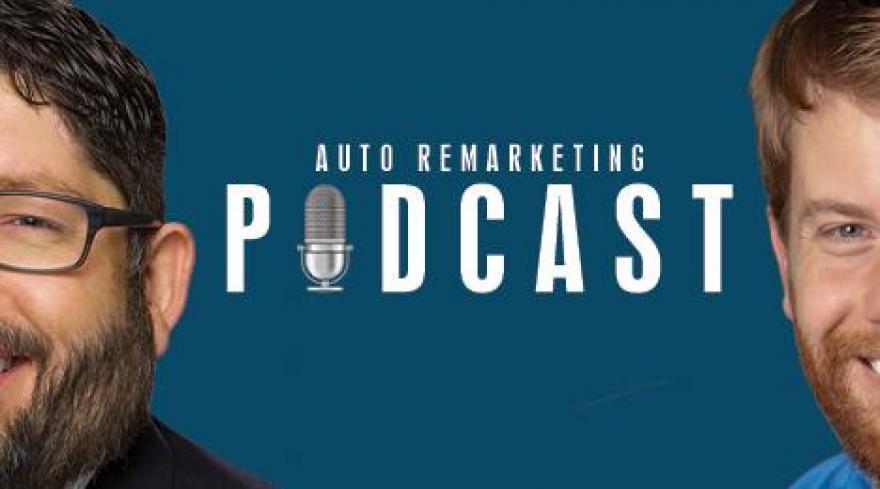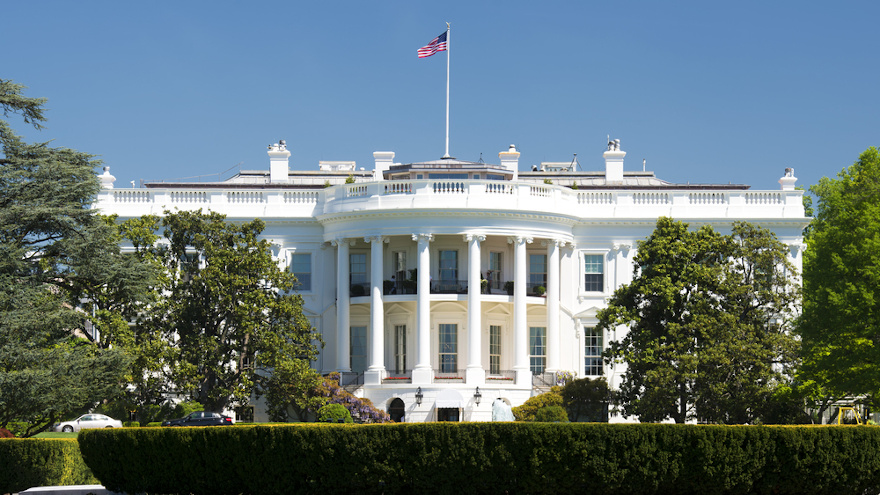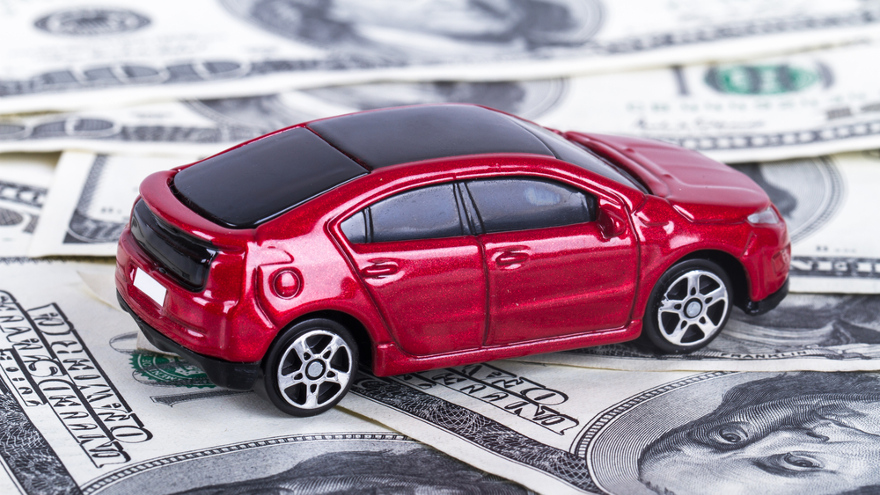It is possible that KAR Global could reopen some ADESA auctions in early April, chief executive officer Jim Hallett said in a call with the investment community on Friday that detailed a wide range of company updates, including cost-cutting measures, operational statuses and more.
On March 20, KAR said it was stopping all ADESA physical sale operations throughout North America — including simulcast-only sales — for at least two weeks.
During the Q&A portion of Friday’s call, Hallett said: “We do have markets where we are restricted from operating. But we also have markets where there is an opportunity to operate. And in those markets where it’s permitted and it's safe, we could see ourselves opening some of our physical sales sometime in early April and then growing it from there.”
Asked later during the Q&A how the decision to restart auctions would be made, Hallett said: “I would say it’s based on two things. No. 1, we have to be legal. We have to follow the local directives, the local ordinances that have been put in place that legally allow us to operate in that market, and there are strong number of markets where we can operate legally.
“Secondly, there has to be demand. No. 1, we have to have sellers that are willing to sell vehicles and on the other side of that equation, we have to have buyers that are willing to buy vehicles,” Hallett said.
“So, if we can open up some of these markets and find that we can have some degree of success in servicing our customers, and that we can convert and we can sell cars, then we’ll continue to do that,” he said. “We would expect that we could be operating initially some auctions in early April.”
Hallett shared several other updates throughout the call, including some positive news on the digital front. One was this: KAR has enrolled thousands of dealers who previously only bought at physical auctions into its simulcast program.
Additionally, the number of simulcast bids the company generated the week of March 16 was over twice as many as it had every received in a prior week.
“These results give me confidence that we will be ready to get back to work more quickly through our simulcast and other online tools,” Hallett said.
He also touched on some operational adjustments the company has made. Hallett, president Peter Kelly and chief financial officer Eric Loughmiller will work without pay through the second quarter or longer, if needed.
The rest of KAR’s executive leadership has agreed to cut their own pay by 50% through the second quarter, and the board of directors has agree to forego cash compensation this quarter.
Among the cost-reduction plans, KAR is temporarily furloughing a “significant” number of employees, but Hallett said, “We do intend to bring these employees back as we see our business recovering.”
KAR is also prohibiting all business travel through April 17 and will extend that if needed. The company has ended any non-essential service provided by third parties at its locations and has delayed or cancelled any capital project at physical auctions.
These actions are expected to trim weekly cash outflow by $10 million per week, Hallett said.
He did note that there are areas that KAR needs to continue investing in, including real estate.
There are already high vehicle volumes on its auction properties, and KAR will need to add temporary storage space to accommodate this volume.
Furthermore, lease return volume is still expected to be high even amid lease extensions, he said.
In other words, cars have to be stored until volume returns.
On the repossession side of the market, several finance companies are temporarily deferring repos, Hallett said, but he emphasized there will be an “influx” of repo units arriving at auctions at some point.
“It is very important that I remind you that the off-lease and the repossessed cars come to us on what I call a one-way ticket,” Hallett said. “We will definitely sell these cars. It’s just a matter of when.”
He went on to mention the importance of technology investments in maintaining platforms.
“We will continue to invest in our technology. All projects that can be productive while working from home will continue. We do not expect our capital investment in technology to decrease significantly. We may delay some projects that have not yet started and will likely see reduced spending in the area in the near-term, but we’ll likely accelerate work where we can,” Hallett said.
The company is asking its commercial sales team to remain in contact with the customers. Meanwhile, the dealer consignment is signing up dealers on all of KAR’s tech platforms.
KAR is also allowing selling dealers to inspect vehicles themselves and launch auctions on the TradeRev platform without having a representative come to their stores.
“If there are cars to be sold and demand for those vehicles, we have the tools and the platforms for transactions to continue,” Hallett said.
The company is withdrawing its guidance for 2020, but Hallett emphasized: “We believe that our balance sheet, including our cash position, is strong. We also believe that we have the resources to get through the temporary disruption and return to business as quickly as possible.”
Returning to business, for anyone these days, will not be without challenges. But Hallett did offer a silver lining of sorts in the last of his opening comments.
“Listen, I know that we're facing challenging times here. Our management team is experienced, and we're absolutely up to the task of getting through this. In many ways, this is a more daunting situation than what we experienced in 2008,” he said.
“However, our financial markets are much stronger today and we have much greater confidence that when the world returns to normal and business recovers, the financial resources will be available to support the economic recovery,” Hallett said.
“In the meantime, my most important responsibility is to protect KAR. We realize the company must come first in all of our decisions. A healthy company will allows us to be there for our employees and our customers and our communities when all of us get back to our normal lives.”
Carvana is enhancing its 100% online shopping experience during the current uncertain times. For customers wanting to buy or trade a vehicle, the company is now offering touchless delivery and pickup.
With touchless delivery, customers can acquire a vehicle without coming into contact with the customer advocate delivering the vehicle to their home.
Carvana also said that Ally, a digital financial services company, is committing up to $2 billion to Carvana.
With the increase and extension of Ally’s financing commitment, Carvana said it can adapt to evolving market dynamics and also remain committed to bringing consumers “the safest way to buy a car.”
Carvana uses touchless delivery for all home deliveries, vehicle returns and trade-ins.
Carvana associate director of communications Amy O’Hara said the health of Carvana’s customers and people it works with is its No. 1 priority. Touchless Delivery allows the company to achieve that goal, she said.
“As priorities are being re-evaluated all around the world, for many, buying or trading in a car may not be at the top of that list,” O’Hara said in a news release.
She continued, “For many others, though, it is. Whether avoiding public transportation, or replacing the broken-down vehicle that gets them to work, or those that need to trade in their car, a safe and simple experience is needed and Carvana is offering it. These commitments from Ally will help us to be there for our customers as we navigate these difficult times together and prepare us to continue serving our customers when things get back to normal.”
The week ending March 22 represented the largest week-over-week decline in wholesale vehicle prices in at least 20 years — and most likely, it’s the largest decline ever, says Larry Dixon of J.D. Power Valuation Series.
The 5% drop in wholesale prices last week was the largest in J.D. Power’s data set, which goes back to 2000.
It was larger than the largest weekly drops around 9/11 (which were slightly more than 2%), the Great Recession or Christmas Week 2013, both of which were in the neighborhood of 3%, according to J.D. Power data Dixon provided.
“It really stands out,” Dixon said by phone Thursday.
Meanwhile, wholesale auction volumes were down 50% week-over-week. “That’s just a massive number,” he said.
On the retail side of the market, used-vehicle prices were down 2% week-over-over-week for the period ending March 22.
In general, for the used-car market, last week was a critical one, as the impact of the COVID-19 pandemic really started to ramp up, Dixon explained.
The market had been strong leading up to last week, which is typical for this time of year, given that it is tax refund season, he said.
The market had seen that traditional upward movement in wholesale and retail used prices; it wasn’t until last week that prices started to accelerate downward, Dixon said.
Retail used-vehicle sales suffered, too, if not more so.
Citing PIN data, Dixon said retail used-car sales volume dropped 38% week-over-week.
Asked if after such a dramatic decrease, if things like would even out, like an “L-shaped” curve, Dixon said: “No, it’s going to get worse.”
That comes as shelter-in-place directives continue to increase in states and municipalities across the country.
All this happening during what is usually the strongest time of year for the used-car market: March and April.
“You have this highly concentrated activity as it relates to used vehicles,” Dixon said of what usually happens in March and April.
Smoke weighs impact on used
Elsewhere, Cox Automotive is conducting daily monitoring of new and used retail sales through its Dealertrack data, utilizing a same-store methodology.
Used-car sales were up 26% year-over-year on March 10, driven by tax returns and the beginning of the spring season, Cox Automotive Jonathan Smoke said Tuesday in this video report.
By March 19, they were down 16%.
Smoke was expecting sales, in general, to continue falling this week, with most people remaining at home and over 35% of franchised dealerships being closed.
“And then as you might expect, as used retail demand has shifted from being up 26% to down 16%, demand for wholesale vehicles has also fallen,” Smoke said.
Much of the wholesale industry, including Cox Automotive’s Manheim auction chain, has shifted to digital only.
“(Wholesale) sales transactions fell 45% last week, year-over-year,” Smoke said. “We are starting to see lower wholesale used-vehicle values, as well. But key metrics, like the 3-year-old MMR Index … are only showing a slight decline so far.
“In fact, the 3-year-old index declined only 0.1% last week,” Smoke said. “But it ended the spring bounce, and it was a real reversal of what we’ve been seeing for three weeks in a row of really strong, almost full percentage gains, on a week-over-week basis.”
The largest declines last week, Smoke said, were for 1-year-old vehicles.
He also pointed out that, “MMR is going to lag two to three weeks before fully reflecting declines, especially when we falling sales volumes, because there’s less transactions to influence the changing metrics of prices.
“Sellers, though, are basically in a mood right now (where) they’re not desperate to sell,” Smoke said. “So, values are holding up relatively well, while other metrics — like sales conversion rates, how many vehicles offered actually sell — are falling sharply.”
Pent-up demand
It had been such a strong start to 2020 in the used-car market.
But it’s not as if this underlying demand is gone, Dixon of J.D Power pointed out. It just can’t really be acted upon right now.
Asked if that demand would transfer to later in the year, should the market get back on track, Dixon said that depends on factors like the economic stimulus package and how quickly the economy recovers.
The used-car market had such strong momentum. Dixon points out how hot demand was and how many industry players were shifting focus to used: everyone from Carvana to CarMax to publicly traded dealer groups
“Those fundamentals are still there,” but releasing that pent-up demand hinges on the economy, he said.
Speaking of pent-up demand, Cox Automotive found in a survey conducted March 20-22 that 28% of six-month vehicle-purchase intenders plan on delaying their car purchase or lease because of COVID-19. That’s an increase from 17% on March 13 and 7% on March 6.
What’s more, 42% say they might change their vehicle consideration, meaning going with used instead of new, buying something less expensive, going with a subscription instead or moving to another segment, Cox found.
“We know that consumers are worried, changing their plans. We also know that they’re looking at some changes in what they plan to purchase,” Smoke said. “But the upside to this is we’re still not even seeing the majority of consumers say that they are planning on putting off that decision.
“And the majority, indeed, seem to be planning to move forward,” he said.
Smoke also pointed out that 29% of vehicle owners plan to delay service/maintenance, which certainly could have an impact.
Projection for used sales
As for how March could shake out, TrueCar’s ALG business unit is forecasting 2,707,235 retail used-car sales this month. That would represent a 29% year-over-year decrease and a 24% drop from February.
“While new- and used-vehicle sales are both down year-over-year, used sales declines aren’t as steep, signaling a shift in demand to vehicles at lower price points,” said Nick Woolard, director of OEM and affinity partner Analytics at TrueCar, in a news release. “As incentives surface to assist with new vehicle affordability and the price delta between new vehicles and recent-model-year used vehicles shrinks, we can expect to see the demand even out between new and used.”
Looking at full-year expectations, Cox Automotive has found that the immediate impact could results in full-year used-car sales of less than 38 million. Should the shutdown be prolonged, there may only be 36 million used-car sales for the year.
Meanwhile, Cox’s Xtime business unit is projecting a 35% dip in consumers servicing their vehicles.
This is the second in a two-part series on the impact of COVID-19 on the used-car market. Part I can be found here.
The COVID-19 pandemic is already impacting the used-vehicle retail market, with sales for March — usually the year’s strongest month for pre-owned — expected to fall dramatically.
And some expect full-year used-car sales could be 9% to 34% lower than original projections, depending on how the crisis plays out.
At Edmunds, analysts are forecasting 2.5 million used-vehicle sales this month, which would be down 34.2% year-over-year. That would put the first-quarter sum at 9.2 million, a 12.4% decrease.
“March is typically the strongest month for used-car sales with the traditional logic being that tax refunds help spur used sales, but with stay-at-home orders and delayed tax payment due date, this will redistribute the peak selling month's sales across the next few months,” Edmunds senior manager of insights Ivan Drury said in emailed comments to Auto Remarketing.
Over at TrueCar subsidiary ALG, analysts have updated their 2020 forecast based on the pandemic and subsequent economic outlook conditions.
The company outlines three scenarios for new-vehicle sales, as listed in a news release:
15.3M (Optimistic):
- Movement restrictions lifted May 1
- Stimulus packages deployed and having a positive impact
13.2M (Mixed):
- Multiple social distancing periods limit out of home activity
- Stimulus packages deployed and having a positive impact
- Supply disruption due to production stoppages
11.2M (Cautious):
- Ongoing social distancing and limited out of home activity through summer
- Prolonged downturn, limited success of stimulus packages
- Increased unemployment throughout 2020
ALG also emphasized the following in a note:
All scenarios are absent severe impacts and “speculative pessimism” from:
- Widespread supply chain or vehicle production disruption
- Prolonged social distancing beyond 6 months
- Prolonged closure of auto dealerships beyond 45-60 days
- Stimulus packages delayed or ineffective
- Significant and sustained declines in macro-economic fundamentals (demand)
Auto Remarketing reached out to ALG to see how those scenarios would play out in the used-vehicle market.
ALG’s initial forecast was for 40.9 million used-vehicle sales this year. Should Scenario 1 (optimistic) play out, the company is projecting 37.0 million used-car sales, which is 9% lower than the initial forecast.
If Scenario 2 (mixed) happens, ALG projects 31.9 million used-car sales (down 22% from initial forecast).
And if it’s Scenario 3 (cautious) that plays out, look for full-year used-car sales to come in at 27.1 million (down 34% from the initial forecast).
Going back to the new-car side, ALG chief industry analyst Eric Lyman said in a news release: “With the temporary closure of dealerships across the nation, continued declines in the stock market and ongoing uncertainty around the short/mid-term strategy to battle COVID-19, ALG expects further declines in our annual automotive sales forecast. While events continue to unfold daily, it seems the most likely outcome is vehicle sales landing in the mid 13 million range for 2020.
“A dependable personal automobile will continue to play a critical role in daily life. Even during ‘stay at home’ orders, vehicles will be used to get essential employees to work, deliver food, run critical errands and provide a safe transport in a time when public transportation is limited or unavailable,” he added.
ALG also emphasized that this downturn in car sales is likely just temporary.
“We cannot stress this enough, automotive sales will return,” ALG vice president of data science Morgan Hansen said in the release. “The aging U.S. vehicle fleet and growth of millennial market are underlying pillars of strength in mid to long-term auto sales.
“Natural replacement demand remains steady at roughly 15.5 million vehicles per year,” Hansen said. “Sales below this figure are not ‘lost’ but merely deferred until we see a return to our daily routine.”
And even amid the pandemic, many shoppers still say they will buy a new or used vehicle this year, according to Autolist.com.
The company polled 1,500 in-market shoppers from March 2-11 and from March 12-24.
The World Health Organization declared COVID-19 a pandemic on March 11.
As you might expect, economic concerns grew and interest in purchasing a car declined over the course of the surveys. However, many people still intend on buying a car this year, even after the pandemic declaration (albeit at a lower rate than prior).
More specifically, the proportion who said prior to March 11 that the coronavirus wouldn’t impact their buying decision was at 80%.
After the declaration, it was at 60%.
“There are two ways to look at that drop,” Autolist analyst Chase Disher said in a release. “The pessimist will see a definite slump in interest from car shoppers because of the coronavirus. But the optimist would point out that 60% is still a healthy amount of people hoping to buy a vehicle in 2020.”
And more people could be looking to go used amid an economic slowdown, which is typical.
Before March 11, 38% said the economy would lead them to buy used over new, according to Autolist. After March 11, it was 45%.
This is the first in a two-part series on the impact of COVID-19 on the used-car market. Part II can be found here.
Hertz is looking to make sure medical personnel in one of the U.S. locations hardest hit by the coronavirus pandemic have reliable transportation.
This week, Hertz started to provide free vehicle rentals to New York City healthcare workers via a program set to run through April 30. The company said healthcare workers can reserve a vehicle at 19 New York City-area Hertz locations so they can continue providing critical care to the community during the coronavirus (COVID-19) pandemic.
“With New York City having the highest number of confirmed cases of COVID-19 in the country, healthcare workers are dealing with extremely challenging circumstances,” Hertz president and chief executive officer Kathryn Marinello said in a news release. “It’s vital that healthcare workers have safe and reliable transportation during this time, and we are eager to help.
“The dramatic decrease in travel means we have more vehicles to serve the most critical needs of the community,” Marinello continued. “We’re starting in New York City with healthcare workers, and we’ll continue to see how we can help during this crisis. It gives all of us at Hertz a sense of purpose and pride to lend our support as much as we can during this very difficult time.”
To immediately have an impact, Hertz said it is working with Mount Sinai Health System to make vehicles available to its employees throughout New York City and is also supplying the Health System with free cargo van rentals to transport ventilators and other medical supplies to support the crisis.
“Mount Sinai Health System and our community of physicians, nurses, trainees, students and other health care professionals are working tirelessly to prevent and reduce the spread of COVID-19 and save lives,” said Kenneth Davis, president and CEO of Mount Sinai Health System.
“We thank Hertz and the growing number of community and business organizations who have pledged their support during this critical time,” Davis added.
The news release mentioned how Lindsay Davis, who is a certified child life specialist in the NICU at Mount Sinai Hospital, is also thankful for the support. She picked up a free rental vehicle from Hertz this week after growing more concerned about getting to and from work.
“A large part of my job is providing emotional support to families in the NICU, so it’s important at a time like this for me to be able to get to work,” Davis shared. “I’m grateful that Hertz is helping me do so safely.”
New York City healthcare workers who would like to reserve a Hertz vehicle from through April 30 should visit Hertz.com for more information.
As the COVID-19 pandemic evolves, Hertz said it will try to be of service in the community. Hertz is providing vehicles to its partner Team Rubicon, a veteran-led disaster response organization that is currently serving communities across the country by providing assistance such as delivery services for food-insecure populations, and coordination and logistics support for those in temporary quarantine through its #NeighborsHelpingNeighbors initiative.
In New York City and nearby New Rochelle, N.Y — both hot zones for the pandemic — Hertz is helping power Team Rubicon’s veteran-led support by donating vehicles to serve at-risk populations in need of essential healthcare.
Additionally, Hertz is supporting Team Rubicon’s efforts with Feeding Westchester by giving Team Rubicon volunteers (known as Greyshirts), vehicles to transport food supplies from food banks in New Rochelle to mobile pantries to help ensure those in need receive proper nourishment.
“Those on the frontline of this crisis — healthcare workers, government agencies and relief organizations — need everyone’s support more than ever,” Marinello said. “Hertz is proud to show our appreciation for the important work they’re doing by providing a valued resource during this difficult time.”
Along with scheduling a conference call to offer more details of the current state of business, KAR Global on Thursday morning outlined five adjustments the company has already made stemming from the coronavirus pandemic.
“The coronavirus pandemic continues to impact our company, industry and markets around the globe,” KAR Global chairman and chief executive officer Jim Hallett said in a news release. “Wholesale dealer demand has decreased significantly over the past several weeks, and both the timeline and pace of market recovery remain unpredictable.
“We look forward to sharing the proactive steps we are taking to continue serving our customers, successfully navigate the uncertainty ahead and position our company to quickly resume full operations as restrictions permit and demand returns,” Hallett continued, in reference to the call scheduled for 11 a.m. ET on Friday.
The company said it is taking a number of proactive steps, including the following to be discussed on the call:
— KAR Global has taken cautionary measures to ensure the continued health, safety and wellbeing of its employees, customers and communities.
— KAR’s executive leadership team will reduce or forgo their salaries during the period our operations are disrupted by the coronavirus pandemic.
— The company’s board of directors will forgo their cash compensation during the second quarter of 2020.
— KAR is reducing operational costs and preparing to scale staff levels to current demand.
— The company is reducing capital expenditures for the remainder of 2020.
“We believe our balance sheet, including our cash position, is strong, and we are well positioned to sustain our business and navigate the uncertainty for the foreseeable future,” Hallett said.
Kevin Filan, vice president of marketing at Cox Automotive Inventory Solutions, joins the Auto Remarketing Podcast.
He and Auto Remarketing's Joe Overby discuss some of the relief measures the company is making to help dealers as they deal with the fallout from COVID-19 and the transitions Cox Automotive has made.
Plus, they review how dealers can make use of the digital resources they already have.
To listen to this episode, click on the link available below, or visit the Auto Remarketing Podcast page.
Download and subscribe to the Auto Remarketing Podcast on iTunes or on Google Play.
Just like the five industry associations asking the president for clarity on behalf of franchised dealerships, the National Independent Automobile Dealers Association on Tuesday also delivered a letter to the White House so stores not connected with an automaker can remain open, too.
In a letter to President Donald Trump, NIADA chief executive officer Steve Jordan requested clarification from the administration that automobile sales and leasing at independent dealerships are essential services permissible during the COVID-19 pandemic, and asked that the recent guidance document on the essential critical infrastructure workforce issued by the Department of Homeland Security and the Cybersecurity and Infrastructure Security Agency be amended to include vehicle sales and leasing as essential services.
Jordan said it is not only critical to safeguard the businesses and services identified as essential, but it is equally important to safeguard businesses that enable essential services to continue uninterrupted — including auto maintenance and repair facilities, which were included in the CISA document.
But motor vehicle sales are also essential, Jordan said, noting, “Whether in times of crisis or not, repairing a vehicle may not be a viable option. The vehicle may be declared a total loss, parts may not be available, the vehicle may simply be worn out or it may not be economically feasible to repair it.
“In these instances, the American consumer may have an immediate need to replace the vehicle. Stated differently, the only repair might be a different vehicle” and consumers “will need the sales and leasing (and perhaps financing) services an independent dealer can provide,” Jordan went on to say.
NIADA added that it will continue to encourage all independent dealers to place the safety of their customers and employees first.
The entire letter by Jordan can be viewed here.
KAR Global made another move late on Tuesday to help dealers navigate through the challenges of the coronavirus pandemic.
Business unit Automotive Finance Corp. (AFC) immediately launched its customer relief program as eligible customers can choose to defer curtailment payments due through May 31 on eligible unsold units, including principal, fees and interest on those vehicles.
AFC explained its customers also can benefit by having the option to make no payments on any new or existing unsold eligible vehicles coming due between now and the end of May.
“Small businesses have been hit especially hard during the current economic events, and the health and economic wellbeing of our customers is paramount to all of us here at AFC,” AFC president Jim Money said. “I want to personally reassure our customers that AFC is here for you in this time of great need.
“We’ll continue to monitor market conditions and review any program adjustments we can make to help customers further,” Money added
AFC emphasized this customer relief program is designed to provide additional support to customers who may experience longer turn times and other business challenges during the COVID-19 coronavirus pandemic and its impact on the economic environment.
AFC insisted its March interest rate decrease (150 basis points in the U.S. and 100 basis points in Canada) offers customers some of the lowest interest rates available.
AFC also mentioned that the company remains open for business, unless otherwise impacted by government mandates. However, in compliance with health and safety regulations, outside guests are not permitted to visit local branches during this time.
Customers are encouraged to conduct all regular transactions on AFCDealer.com or on the AFC On the Go mobile app.
For program information, exclusions and resources, visit https://pages.autofinance.com/relief.
DealerSocket chief executive officer and president Sejal Pietrzak says the automotive software company has built its reputation “on a legacy of listening and partnering with our dealers.”
In a Monday letter to DealerSocket’s customers and partners, Pietrzak said the company has engaged in “countless discussions with customers,” and as a result is offering customers what it describes as a “significant reduction” to their April DealerSocket bill.
The company, Pietrzak said, recognizes “that all of us are in this fight together,” regarding the COVID-19 crisis. She added that the company is focused on helping dealers “navigate through this crisis both economically and operationally.”
A discount of 50% off DealerSocket CRM is just one of several of the significant price reductions.
Another discount is 50% off RevenueRadar, its data and equity mining tool.
Others include 50% off CarWars, 50% off Inventory+, and 50% off DealerFire websites and Precise Price digital retail.
DealerSocket noted that OEM programs for websites, RevenueRadar and digital retailing offerings will be subject to working through OEM partners.
Additional discounts DealerSocket is offering include 25% off IDMS for independent dealers and 25% off Auto/Mate DMS for franchise dealers.
DealerSocket will automatically credit customers’ bills for the specific amounts. Because the company has sent out many April bills, customers’ credit statement will be separate from their April bill.
Pietrzak wrote that the company is putting together discounted bundled packages for non-Auto/Mate DMS customers, who she said can experience significant savings “in these trying times as well as into the future” by switching to Auto/Mate DMS. The company will soon post information on those packages at
https://www.dealersocket.com/coronavirus-support/.
“As I’m sure you are also experiencing, things seem to change hour by hour,” Pietrzak wrote.
She continued, “We will continue to assess the situation and talk with our customers, as we plan for things beyond April. We are trying to strike the right balance between being prepared for you when the market recovers and ensuring we can all weather this storm together.”
The letter offered additional details on the discounts. The fee reductions represent discounts to the monthly subscription amounts by DealerSocket and not third-party products, fees such as DMS fees, books fees, and other transactional fees. If the third-party providers lower or waive their fees, DealerSocket will pass the entire savings to the customer.
In addition, the discounts apply to customers that stay current with their DealerSocket account.
DealerSocket is also offering additional promotions to help customers get through the crisis. The offers include promotions for the following:
— Precise Price digital retailing
— Inventory+ Absolute Sourcing and New Car functionality
— Delivery Test Drive Scheduler
— Digital Credit Application
Pietrzak wrote that DealerSocket is often adding promotions and various resources for dealers, so they should continue to check information at https://www.dealersocket.com/coronavirus-support/.
“We will get through this, and we will get through this together,” she wrote.
She continued, “We are committed to fighting through this with you. Thank you for partnering with DealerSocket. I wish you, your families, and your team members health in these unprecedented times.”

